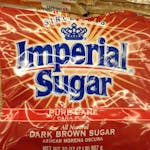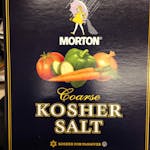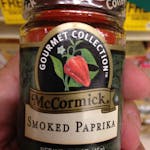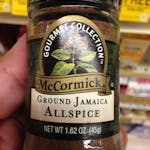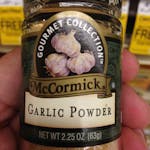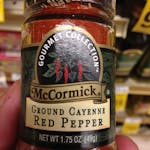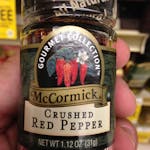Salt and pepper is a good start to any barbecue rub, but most on the market go well beyond that. The many labels on store shelves show the infinite combinations of paprika, sugar, garlic powder and anything else from the spice aisle that manufacturers believe will make their rub stand out. Sometimes it’s not the ingredients, but the name on the label or even the packaging that turn a rub into a big seller. A good reputation on the barbecue competition circuit is another surefire way to get a spike in sales. No matter what’s in the label or in the list of ingredients, you can be damn sure you’ll pay a premium for it because pre-packaged commercial rubs are expensive.
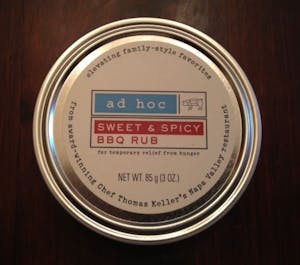
Just how expensive a rub is has something to do with packaging, shipping, and marketing costs, but why should you be paying for pretty bottle? I was at a high end retail shop the other day when I saw a small tin of rub from Ad Hoc restaurant in Yountville, California. It’s a small restaurant from a megastar chef with a big name – Thomas Keller. The packaging was slick, but not quite enough for the $12.95 price tag for 3 ounces (85 grams) of rub. The ingredients on the label were few, so I wondered how much it would actually cost to replicate a similar rub from my own pantry – a little Ad Hoc at home.
My first stop was the grocery store. I needed to find the prices of the seven ingredients on the label.
Dark Brown Sugar $2.19 for 907 g
Kosher Salt $2.39 for 1360 g
Smoked Paprika $6.49 for 45 g
Allspice $5.19 for 45 g
Garlic Powder $6.19 for 63 g
Cayenne Pepper $4.59 for 49 g
Crushed Red Pepper $5.59 for 31 g
This was the order the ingredients were listed on the Ad Hoc rub label, so I knew the dark brown sugar would make up the bulk of it. To try and replicate it, I started with a taste. It wasn’t overly spicy, so I knew the cayenne and crushed red pepper weren’t too prominent. The smokiness of the paprika and pungency of the allspice was very pronounced. When placed in a small bowl, the rub caked together like brown sugar, so I knew the sugar would far outweigh the other ingredients. Instead of keeping tracks of fractions of ounces I did my measurements in grams.
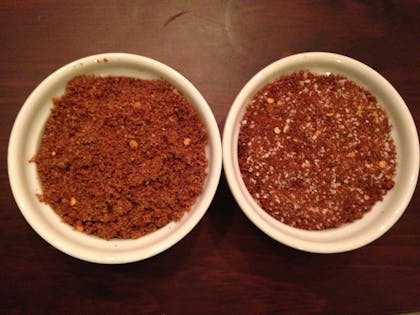
I started with just a couple grams each of red pepper and cayenne. I doubled that amount to four grams of garlic powder, allspice and smoked paprika. I knew there’d be plenty of salt and sugar, so I went with 20 grams of salt and 50 grams of dark brown sugar. You could see the salt crystals far too well, so this mix had a higher salt-to-sugar ratio than the Ad Hoc rub. I doubled the brown sugar, but it still wasn’t clumping enough.
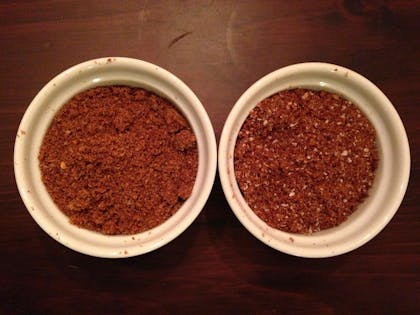
After getting to 160 grams of brown sugar it finally started to clump. I then doubled the smoked paprika to get it back to the correct red hue. A side-by-side tasting now showed them to be almost identical. Here is what I ended up with:
For 200 g of rub
Dark Brown Sugar $0.39 for 160 g
Kosher Salt $0.04 for 20 g
Smoked Paprika $1.15 for 8 g
Allspice $0.46 for 4 g
Garlic Powder $0.39 for 4 g
Cayenne Pepper $0.19 for 2 g
Crushed Red Pepper $0.36 for 2 g
Total $2.98 for 200 g
That translates into $1.27 for 85 grams of essentially the same rub that I had just paid ten times that amount for.
What’s the point? This wasn’t meant to be a science experiment to perfectly re-engineer a commercial rub, but with all the exact ingredients listed it was easy enough to get a close replica. Knowing that pre-packaged rubs in general are expensive, I just wanted to see how expensive. In this case it was roughly ten times the cost of doing it myself. I’m not telling you to stop buying a specific rub if you like the results, but I do want to let you know how much cheaper it is to make one yourself. It’s also not too complicated, and making your own allows you to make it fresh and to your own tastes. Here are some basic ones I like to use as a base for brisket and ribs:
Brisket/Beef Ribs – Use a 4:1 ratio of fresh cracked black pepper to kosher salt (I don’t like sweet on my beef).
Pork Ribs – Use a 4:2:2:1 ratio of fresh cracked black pepper, brown sugar, kosher salt, and paprika.
Use these basic rubs by themselves first. This will allow you to see what you think is missing. Add ingredients as you like to get the flavor you prefer, or just stick with the cheap and easy versions.
So, what did I do with all the rub I had just made/purchased? It was eighty percent sugar, which is way too high for my tastes, and it didn’t have what I consider a key ingredient in a good rub – black pepper. I added a good amount of both and put it into some empty bottles. Now I just need to get to the store and buy a few racks of ribs for smoking.
- More About:
- BBQ Joint Reviews



